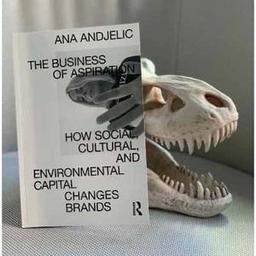
Vitalik Buterin
Vitalik Buterin is a Russian-Canadian computer programmer, writer, and co-founder of Ethereum. He was born in Kolomna, Russia in 1994, and his father was a computer scientist. Buterin became involved with cryptocurrency early in its inception, co-founding Bitcoin Magazine in 2011. In 2013, he wrote a white paper that laid the foundations of Ethereum, a blockchain platform for decentralized applications. Buterin deployed the Ethereum blockchain in 2014 with a team of co-founders. He is known for his work on digital contracts, digital currencies, and game theory.
126 Quotes
"verification of a ZK-SNARK is quite computationally intensive"
— Vitalik Buterin
An Incomplete Guide to Rollups"it comes at a cost: channels require no data whatsoever to go on chain during ""normal operation"", but Plasma requires each chain to publish one hash at regular intervals. Additionally, Plasma transfers are not instant: you have to wait for the interval to end and for the block to be published."
— Vitalik Buterin
An Incomplete Guide to Rollups"there are limits to what channels can do. Channels cannot be used to send funds off-chain to people who are not yet participants. Channels cannot be used to represent objects that do not have a clear logical owner (eg. Uniswap). And channels, especially if used to do things more complex than simple recurring payments, require a large amount of capital to be locked up."
— Vitalik Buterin
An Incomplete Guide to Rollups"Second, you can change the way that you use the blockchain. Instead of putting all activity on the blockchain directly, users perform the bulk of their activity off-chain in a ""layer 2"" protocol."
— Vitalik Buterin
An Incomplete Guide to Rollups"There are two ways to scale a blockchain ecosystem. First, you can make the blockchain itself have a higher transaction capacity."
— Vitalik Buterin
An Incomplete Guide to Rollups"The main challenge with this technique is that blockchains with ""bigger blocks"" are inherently more difficult to verify and likely to become more centralized."
— Vitalik Buterin
An Incomplete Guide to Rollups"The three major types of layer-2 scaling are state channels, Plasma and rollups."
— Vitalik Buterin
An Incomplete Guide to Rollups"Plasma provides stronger properties than channels: you can send assets to participants who were never part of the system, and the capital requirements are much lower."
— Vitalik Buterin
An Incomplete Guide to Rollups"Plasma and channels share a key weakness in common: the game theory behind why they are secure relies on the idea that each object controlled by both systems has some logical ""owner""."
— Vitalik Buterin
An Incomplete Guide to Rollups"it is a deal breaker for many others (eg. Uniswap). Even systems where the state of an object can be changed without the owner's consent (eg. account-based systems, where you can increase someone's balance without their consent) do not work well with Plasma."
— Vitalik Buterin
An Incomplete Guide to Rollups"a large amount of ""application-specific reasoning"" is required in any realistic plasma or channels deployment, and it is not possible to make a plasma or channel system that just simulates the full ethereum environment (or ""the EVM"")."
— Vitalik Buterin
An Incomplete Guide to Rollups"Rollups, on the other hand, are a ""hybrid"" layer 2 scheme. Rollups move computation (and state storage) off-chain, but keep some data per transaction on-chain."
— Vitalik Buterin
An Incomplete Guide to Rollups"at a very favorable ratio: whereas an Ethereum base-layer ERC20 token transfer costs ~45000 gas, an ERC20 token transfer in a rollup takes up 16 bytes of on-chain space and costs under 300 gas."
— Vitalik Buterin
An Incomplete Guide to Rollups"The fact that data is on-chain is key (note: putting data ""on IPFS"" does not work, because IPFS does not provide consensus on whether or not any given piece of data is available; the data must go on a blockchain)."
— Vitalik Buterin
An Incomplete Guide to Rollups"Putting data on-chain and having consensus on that fact allows anyone to locally process all the operations in the rollup if they wish to, allowing them to detect fraud, initiate withdrawals, or personally start producing transaction batches."
— Vitalik Buterin
An Incomplete Guide to Rollups"rollups are fully general-purpose, and one can even run an EVM inside a rollup, allowing existing Ethereum applications to migrate to rollups with almost no need to write any new code."
— Vitalik Buterin
An Incomplete Guide to Rollups"There is a smart contract on-chain which maintains a state root: the Merkle root of the state of the rollup (meaning, the account balances, contract code, etc, that are ""inside"" the rollup)."
— Vitalik Buterin
An Incomplete Guide to Rollups"Anyone can publish a batch, a collection of transactions in a highly compressed form together with the previous state root and the new state root (the Merkle root after processing the transactions). The contract checks that the previous state root in the batch matches its current state root; if it does, it switches the state root to the new state root."
— Vitalik Buterin
An Incomplete Guide to Rollups"If someone can submit a batch with any post-state root with no consequences, they could just transfer all the coins inside the rollup to themselves."
— Vitalik Buterin
An Incomplete Guide to Rollups"Optimistic rollups, which use fraud proofs: the rollup contract keeps track of its entire history of state roots and the hash of each batch."
— Vitalik Buterin
An Incomplete Guide to Rollups"ZK rollups, which use validity proofs: every batch includes a cryptographic proof called a ZK-SNARK (eg. using the PLONK protocol), which proves that the post-state root is the correct result of executing the batch. No matter how large the computation, the proof can be very quickly verified on-chain."
— Vitalik Buterin
An Incomplete Guide to Rollups"ZK-SNARKs are very new and mathematically complex technology"
— Vitalik Buterin
An Incomplete Guide to Rollups"in the medium to long term ZK rollups will win out in all use cases as ZK-SNARK technology improves."
— Vitalik Buterin
An Incomplete Guide to Rollups"A simple Ethereum transaction (to send ETH) takes ~110 bytes. An ETH transfer on a rollup, however, takes only ~12 bytes"
— Vitalik Buterin
An Incomplete Guide to Rollups"In the rollup, we can omit the nonce entirely, because we just recover the nonce from the pre-state"
— Vitalik Buterin
An Incomplete Guide to Rollups"One important compression trick that is specific to ZK rollups is that if a part of a transaction is only used for verification, and is not relevant to computing the state update, then that part can be left off-chain. This cannot be done in an optimistic rollup because that data would still need to be included on-chain in case it needs to be later checked in a fraud proof"
— Vitalik Buterin
An Incomplete Guide to Rollups"with compression tricks the scaling factor can go over 100x for almost all applications."
— Vitalik Buterin
An Incomplete Guide to Rollups"there is a risk that multiple participants will generate and attempt to submit batches in parallel, and only one of those batches can be successfully included. This leads to a large amount of wasted effort in generating proofs and/or wasted gas in publishing batches to chain."
— Vitalik Buterin
An Incomplete Guide to Rollups"On the existing Ethereum chain, the gas limit is 12.5 million, and each byte of data in a transaction costs 16 gas."
— Vitalik Buterin
An Incomplete Guide to Rollups"a rollup for ETH transfers requires only 12 bytes per user operation, meaning that the batch can contain up to 62,500 transactions. At an average block time of 13 seconds, this translates to ~4807 TPS (compared to 12.5 million / 21000 / 13 ~= 45 TPS for ETH transfers directly on Ethereum itself)"
— Vitalik Buterin
An Incomplete Guide to Rollups"what if we want to go above ~1000-4000 TPS (depending on the specific use case)? Here is where eth2 data sharding comes in. The sharding proposal opens up a space of 16 MB every 12 seconds that can be filled with any data, and the system guarantees consensus on the availability of that data. This data space can be used by rollups."
— Vitalik Buterin
An Incomplete Guide to Rollups"Rollups are a powerful new layer-2 scaling paradigm, and are expected to be a cornerstone of Ethereum scaling in the short and medium-term future (and possibly long-term as well)."
— Vitalik Buterin
An Incomplete Guide to Rollups"a key compromise: not trying to go fully off-chain, but instead leaving a small amount of data per transaction on-chain."
— Vitalik Buterin
An Incomplete Guide to Rollups"once you start thinking about fault tolerance of the community that governs the protocol’s ongoing development, then political decentralization is important too."
— Vitalik Buterin
The Meaning of Decentralization"Logical (de)centralization— does the interface and data structures that the system presents and maintains look more like a single monolithic object, or an amorphous swarm?"
— Vitalik Buterin
The Meaning of Decentralization"When people talk about software decentralization, there are actually three separate axes of centralization/decentralization that they may be talking about."
— Vitalik Buterin
The Meaning of Decentralization"Architectural (de)centralization — how many physical computers is a system made up of? How many of those computers can it tolerate breaking down at any single time?"
— Vitalik Buterin
The Meaning of Decentralization"Political (de)centralization — how many individuals or organizations ultimately control the computers that the system is made up of?"
— Vitalik Buterin
The Meaning of Decentralization"Blockchains are politically decentralized (no one controls them) and architecturally decentralized (no infrastructural central point of failure) but they are logically centralized (there is one commonly agreed state and the system behaves like a single computer)"
— Vitalik Buterin
The Meaning of Decentralization"Fault tolerance— decentralized systems are less likely to fail accidentally because they rely on many separate components that are not likely."
— Vitalik Buterin
The Meaning of Decentralization"Attack resistance— decentralized systems are more expensive to attack and destroy or manipulate because they lack sensitive central points that can be attacked at much lower cost than the economic size of the surrounding system."
— Vitalik Buterin
The Meaning of Decentralization"Collusion resistance — it is much harder for participants in decentralized systems to collude to act in ways that benefit them at the expense of other participants"
— Vitalik Buterin
The Meaning of Decentralization"once you adopt a richer economic model, and particularly one that admits the possibility of coercion (or much milder things like targeted DoS attacks against nodes), decentralization becomes more important."
— Vitalik Buterin
The Meaning of Decentralization"In general, the modern world is in many cases characterized by an attack/defense asymmetry in favor of the attacker"
— Vitalik Buterin
The Meaning of Decentralization"it pushes strongly in favor of proof of stake over proof of work, as computer hardware is easy to detect, regulate, or attack, whereas coins can be much more easily hidden"
— Vitalik Buterin
The Meaning of Decentralization"Collusion is difficult to define; perhaps the only truly valid way to put it is to simply say that collusion is “coordination that we don’t like”."
— Vitalik Buterin
The Meaning of Decentralization"one sub-group being able to coordinate while the others cannot is dangerous."
— Vitalik Buterin
The Meaning of Decentralization"If any one actor gets more than 1/3 of the mining power in a proof of work system, they can gain outsized profits by selfish-mining."
— Vitalik Buterin
The Meaning of Decentralization"Perhaps the best solution may be to rely heavily on the one group that is guaranteed to be fairly decentralized: the protocol’s users."
— Vitalik Buterin
The Meaning of Decentralization"Mining algorithms should be designed in a way that minimizes the risk of centralization."
— Vitalik Buterin
What Does Decentralization Really Mean? | Vitalik Buterin"Architectural centralization often leads to political centralization, though not necessarily — in a formal democracy, politicians meet and hold votes in some physical governance chamber, but the maintainers of this chamber do not end up deriving any substantial amount of power over decision-making as a result."
— Vitalik Buterin
What Does Decentralization Really Mean? | Vitalik Buterin"Logical (de)centralization— does the interface and data structures that the system presents and maintains look more like a single monolithic object, or an amorphous swarm? One simple heuristic is: if you cut the system in half, including both providers and users, will both halves continue to fully operate as independent units?"
— Vitalik Buterin
What Does Decentralization Really Mean? | Vitalik Buterin"Fault tolerance — decentralized systems are less likely to fail accidentally because they rely on many separate components that are not likely to fail"
— Vitalik Buterin
What Does Decentralization Really Mean? | Vitalik Buterin"Attack resistance — decentralized systems are more expensive to attack and destroy or manipulate because they lack sensitive central points that can be attacked at much lower cost than the economic size of the surrounding system."
— Vitalik Buterin
What Does Decentralization Really Mean? | Vitalik Buterin"It is crucially important to have multiple competing implementations."
— Vitalik Buterin
What Does Decentralization Really Mean? | Vitalik Buterin"Ideally we use proof of stake to move away from hardware centralization risk entirely (though we should also be cautious of new risks that pop up due to proof of stake)."
— Vitalik Buterin
What Does Decentralization Really Mean? | Vitalik Buterin"The scalability trilemma says that there are three properties that a blockchain try to have, and that, if you stick to ""simple"" techniques, you can only get two of those three."
— Vitalik Buterin
Why sharding is great: demystifying the technical properties"Scalability: the chain can process more transactions than a single regular node (think: a consumer laptop) can verify."
— Vitalik Buterin
Why sharding is great: demystifying the technical properties"Decentralization: the chain can run without any trust dependencies on a small group of large centralized actors."
— Vitalik Buterin
Why sharding is great: demystifying the technical properties"Security: the chain can resist a large percentage of participating nodes trying to attack it"
— Vitalik Buterin
Why sharding is great: demystifying the technical properties"The best way to describe sharding starts from the problem statement that shaped and inspired the solution: the Scalability Trilemma."
— Vitalik Buterin
Why sharding is great: demystifying the technical properties"Sharding is the future of Ethereum scalability, and it will be key to helping the ecosystem support many thousands of transactions per second and allowing large portions of the world to regularly use the platform at an affordable cost."
— Vitalik Buterin
Why sharding is great: demystifying the technical properties"Traditional blockchains"
— Vitalik Buterin
Why sharding is great: demystifying the technical properties"These rely on every participant running a full node that verifies every transaction, and so they have decentralization and security, but not scalability."
— Vitalik Buterin
Why sharding is great: demystifying the technical properties"This is scalable and secure (using the definitions above), but it is not decentralized."
— Vitalik Buterin
Why sharding is great: demystifying the technical properties"Multi-chain ecosystems"
— Vitalik Buterin
Why sharding is great: demystifying the technical properties"this refers to the general concept of ""scaling out"" by having different applications live on different chains and using cross-chain-communication protocols to talk between them. This is decentralized and scalable, but it is not secure"
— Vitalik Buterin
Why sharding is great: demystifying the technical properties"Sharding through Random Sampling"
— Vitalik Buterin
Why sharding is great: demystifying the technical properties"what we do is we randomly split up the work of doing the verification. We randomly shuffle the validator list, and we assign the first 100 validators in the shuffled list to verify the first block, the second 100 validators in the shuffled list to verify the second block, etc. A randomly selected group of validators that gets assigned to verify a block (or perform some other task) is called a committee."
— Vitalik Buterin
Why sharding is great: demystifying the technical properties"The random sampling prevents the attacker from concentrating their power on one shard. In a 100-chain multichain ecosystem, the attacker only needs ~0.5% of the total stake to wreak havoc: they can focus on 51% attacking a single chain."
— Vitalik Buterin
Why sharding is great: demystifying the technical properties"Tight coupling: if even one shard gets a bad block, the entire chain reorgs to avoid it. There is a social contract (and in later sections of this document we describe some ways to enforce this technologically) that a chain with even one bad block in even one shard is not acceptable and should get thrown out as soon as it is discovered."
— Vitalik Buterin
Why sharding is great: demystifying the technical properties"Improving sharding with better security models"
— Vitalik Buterin
Why sharding is great: demystifying the technical properties"One common refrain in Bitcoin circles, and one that I completely agree with, is that blockchains like Bitcoin (or Ethereum) do NOT completely rely on an honest majority assumption."
— Vitalik Buterin
Why sharding is great: demystifying the technical properties"And even if they do revert or censor transactions, users running regular nodes could easily detect that behavior, so if the community wishes to coordinate to resolve the attack with a fork that takes away the attacker's power they could do so quickly."
— Vitalik Buterin
Why sharding is great: demystifying the technical properties"The lack of this extra security is a key weakness of the more centralized high-TPS chains."
— Vitalik Buterin
Why sharding is great: demystifying the technical properties"Ideally, we want to have a form of sharding that avoids 51% trust assumptions for validity, and preserves the powerful bulwark of security that traditional blockchains get from full verification. And this is exactly what much of our research over the last few years has been about."
— Vitalik Buterin
Why sharding is great: demystifying the technical properties"Validating computation:"
— Vitalik Buterin
Why sharding is great: demystifying the technical properties"Validating data availability:"
— Vitalik Buterin
Why sharding is great: demystifying the technical properties"This is expanded on in the fisherman's dilemma:"
— Vitalik Buterin
Why sharding is great: demystifying the technical properties"The core idea is that the two ""worlds"", one where V1 is an evil publisher and V2 is an honest challenger and the other where V1 is an honest publisher and V2 is an evil challenger, are indistinguishable to anyone who was not trying to download that particular piece of data at the time."
— Vitalik Buterin
Why sharding is great: demystifying the technical properties"The fact that it is impossible to distinguish who was right and who was wrong makes it impossible to have a working fraud proof scheme for data availability."
— Vitalik Buterin
Why sharding is great: demystifying the technical properties"In the case of Ethereum sharding, the near-term plan is to make sharded blocks data-only; that is, the shards are purely a ""data availability engine"", and it's the job of layer-2 rollups to use that secure data space, plus either fraud proofs or ZK-SNARKs, to implement high-throughput secure transaction processing capabilities."
— Vitalik Buterin
Why sharding is great: demystifying the technical properties"The key goal of sharding is to come as close as possible to replicating the most important security properties of traditional (non-sharded) blockchains but without the need for each node to personally verify each transaction."
— Vitalik Buterin
Why sharding is great: demystifying the technical properties"However, there are some chinks in the sharded system's armor."
— Vitalik Buterin
Why sharding is great: demystifying the technical properties"Sharded chains that rely only on committees are vulnerable to adaptive adversaries, and have weaker accountability."
— Vitalik Buterin
Why sharding is great: demystifying the technical properties"Data availability sampling is only secure if there is a sufficient number of online clients that they collectively make enough data availability sampling requests that the responses almost always overlap to comprise at least 50% of the block."
— Vitalik Buterin
Why sharding is great: demystifying the technical properties"If the sharded chain relies on fraud proofs, then it relies on timing assumptions"
— Vitalik Buterin
Why sharding is great: demystifying the technical properties"There is a much larger amount of raw data that needs to be passed around, increasing the risk of failures under extreme networking conditions."
— Vitalik Buterin
Why sharding is great: demystifying the technical properties"Sharded blockchains depend on sharded peer-to-peer networks, and each individual p2p ""subnet"" is easier to attack because it has fewer nodes."
— Vitalik Buterin
Why sharding is great: demystifying the technical properties"Why not centralized production and sharded verification?"
— Vitalik Buterin
Why sharding is great: demystifying the technical properties"One alternative to sharding that gets often proposed is to have a chain that is structured like a centralized high-TPS chain, except it uses data availability sampling and sharding on top to allow verification of validity and availability."
— Vitalik Buterin
Why sharding is great: demystifying the technical properties"It's much harder to detect censorship by block producers in a high-TPS chain."
— Vitalik Buterin
Why sharding is great: demystifying the technical properties"If a majority of block producers and ecosystem members tries to force through an unpopular protocol change, users' clients will certainly detect it, but it's much harder for the community to rebel and fork away because they would need to spin up a new set of very expensive high-throughput nodes to maintain a chain that keeps the old rules."
— Vitalik Buterin
Why sharding is great: demystifying the technical properties"Centralized infrastructure is more vulnerable to censorship imposed by external actors."
— Vitalik Buterin
Why sharding is great: demystifying the technical properties"There's a stronger pressure for high-performance computation to move to centralized cloud services, increasing the risk that the entire chain will be run within 1-3 companies' cloud services, and hence risk of the chain going down because of many block producers failing simultaneously."
— Vitalik Buterin
Why sharding is great: demystifying the technical properties"Does the community actually have that much leverage?"
— Vitalik Buterin
The Most Important Scarce Resource is Legitimacy"The standard answer to this puzzle has to do with concepts like ""public choice theory"" and ""Schelling fences"": even though we could easily identify some valuable public goods to redirect some funding to as a one-off, making a regular institutionalized pattern of such decisions carries risks of political chaos and capture that are in the long run not worth it"
— Vitalik Buterin
The Most Important Scarce Resource is Legitimacy"But regardless of the reasons why, we are faced with this interesting fact that the organisms that are the Bitcoin and Ethereum ecosystems are capable of summoning up billions of dollars of capital, but have strange and hard-to-understand restrictions on where that capital can go."
— Vitalik Buterin
The Most Important Scarce Resource is Legitimacy"And it's a social force that underlies all sorts of extremely powerful mechanisms far beyond the blockchain space. For reasons that will be clear in the upcoming sections, I will give this powerful social force a name: legitimacy."
— Vitalik Buterin
The Most Important Scarce Resource is Legitimacy"Why is it that Elon Musk can sell an NFT of Elon Musk's tweet, but Jeff Bezos would have a much harder time doing the same?"
— Vitalik Buterin
The Most Important Scarce Resource is Legitimacy"To anyone who has even a basic intuitive understanding of human social psychology (or the fake art scene), the answer is obvious: Elon selling Elon's tweet is the real thing, and Jeff doing the same is not."
— Vitalik Buterin
The Most Important Scarce Resource is Legitimacy"And, going even further out, legitimacy governs all sorts of social status games, intellectual discourse, language, property rights, political systems and national borders."
— Vitalik Buterin
The Most Important Scarce Resource is Legitimacy"Legitimacy is a pattern of higher-order acceptance. An outcome in some social context is legitimate if the people in that social context broadly accept and play their part in enacting that outcome, and each individual person does so because they expect everyone else to do the same."
— Vitalik Buterin
The Most Important Scarce Resource is Legitimacy"Legitimacy is a phenomenon that arises naturally in coordination games."
— Vitalik Buterin
The Most Important Scarce Resource is Legitimacy"For both of these components, it's really really important that whatever NFT you buy is recognized as legitimate by everyone else. In all of these cases, there's a great benefit to having the same answer as everyone else, and the mechanism that determines that equilibrium has a lot of power."
— Vitalik Buterin
The Most Important Scarce Resource is Legitimacy"There are hundreds of billions of dollars of capital flowing around, but public goods that are key to that capital's ongoing survival are receiving only tens of millions of dollars per year of funding"
— Vitalik Buterin
The Most Important Scarce Resource is Legitimacy"There are two ways to respond to this fact. The first way is to be proud of these limitations and the valiant, even if not particularly effective, efforts that your community makes to work around them."
— Vitalik Buterin
The Most Important Scarce Resource is Legitimacy"we should also focus on building better social technologies to fund public goods at the scales that we need, and as a systemic part of our economic ecology and not one-off acts of philanthropic initiative."
— Vitalik Buterin
The Most Important Scarce Resource is Legitimacy"You cannot force anyone to do anything, but in this market is is all network effect."
— Vitalik Buterin
The Most Important Scarce Resource is Legitimacy"Now, this is certainly not a conception of legitimacy that we want to replicate verbatim - there is little appetite in the Ethereum community for enriching a small group of early adopters - but the core concept can be adapted into something much more socially valuable."
— Vitalik Buterin
The Most Important Scarce Resource is Legitimacy"This state of affairs is not the fault of the organizations themselves, who are typically valiantly doing their best to support the ecosystem. Rather, it's the rules of the ecosystem that are being unfair to that organization, because they hold the organization to an unfairly high standard."
— Vitalik Buterin
The Most Important Scarce Resource is Legitimacy"there are limits to the value of this kind of community support. If a competing project (or even a fork of an existing project) gives its users a much better offering, then users are going to flock to it, regardless of how many people yell at them to instead use some alternative that they consider to be more pro-social."
— Vitalik Buterin
The Most Important Scarce Resource is Legitimacy"NFTs stand a great chance of significantly helping many kinds of public goods, especially of the creative variety, at least partially solve their chronic and systemic funding deficiencies."
— Vitalik Buterin
The Most Important Scarce Resource is Legitimacy"Fortunately, we have the ability to help shape the outcome."
— Vitalik Buterin
The Most Important Scarce Resource is Legitimacy"If the conception of legitimacy for NFTs can be pulled in a good direction, there is an opportunity to establish a solid channel of funding to artists, charities and others."
— Vitalik Buterin
The Most Important Scarce Resource is Legitimacy"Some institution (or even DAO) could ""bless"" NFTs in exchange for a guarantee that some portion of the revenues goes toward a charitable cause, ensuring that multiple groups benefit at the same time."
— Vitalik Buterin
The Most Important Scarce Resource is Legitimacy"We can work with social media platforms to make NFTs more visible on people's profiles, giving buyers a way to show the values that they committed not just their words but their hard-earned money to."
— Vitalik Buterin
The Most Important Scarce Resource is Legitimacy"This could be combined with (1) to nudge users toward NFTs that contribute to valuable social causes."
— Vitalik Buterin
The Most Important Scarce Resource is LegitimacyExplore More Quotes 📚
Want to Save Quotes?
Glasp is a social web highlighter that people can highlight and organize quotes and thoughts from the web, and access other like-minded people’s learning.

















